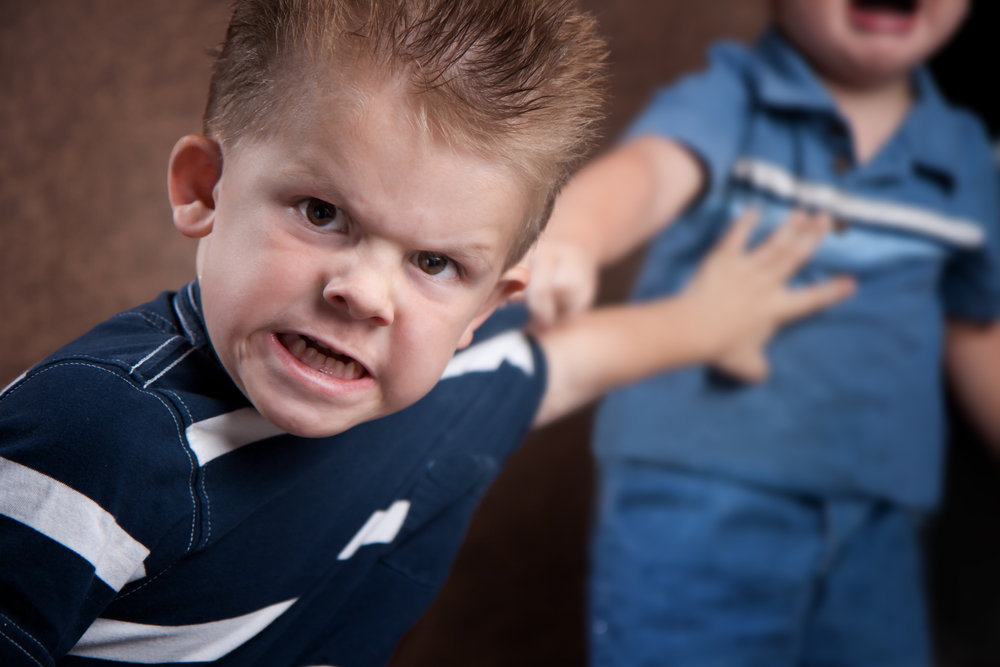Your child is shrieking, throwing toys, hitting their sibling, or sulking in the corner. Their anger is out of control. You want to help them control their emotions and stop acting out. Find out how to help your child with anger management.
Childhood Aggression is Scary for Parents and Children
When a child is prone to tantrums, aggressive behavior, or bottling up their anger, it can push parents to their limits and present serious harm to the child. It is common for children who are having trouble handling their emotions to direct their anger at a caregiver. That can be scary and stressful for parent and child alike.
It is Healthy to Get Angry
Anger is a healthy and adaptive emotion in response to a perceived threat. When something triggers that response, the brain puts the body into “fight, flight, or freeze” mode to respond to that threat. Most children do not need to physically flee or fight when they feel angry. Still, the emotional response is natural when your child feels threatened or wronged.
Anger Management is About Controlling Aggression and Suppression
While the emotion of anger is healthy, many of the behaviors that come with it are not. Toddlers and children are naturally more aggressive than other age groups, especially when they can’t explain their feelings. Aggressive children struggle to maintain friendships or cope at school.
Other children will suppress their anger, bottling up their feelings until they lose control and lash out. However, this can be physically unhealthy as well, causing high blood pressure, depression, and even self-harm or suicide later in life.
To avoid these consequences, parents should teach their children anger management strategies early in life. By modeling good emotional behavior, you can teach your child to cope with their emotions.
5 Strategies to Teach Your Child Anger Management
Anger management is a form of emotion regulation. Parents can help their children regulate their emotions by:
1. Staying Calm When They are Angry
As the parent, you must avoid responding to anger with anger. This isn’t easy, but if you lose control or start yelling, you will only feed into the threat your child is experiencing, making them more aggressive and defiant.
2. Protecting the Child and Others
When a child is out of control, they may hurt themselves, break things, or hurt others. Later, after the emotion has passed, they will likely regret what they have done. As a parent, you should step in and interrupt their emotional response, protecting them from doing something they will be sorry for later.
3. Inviting Them to Step Away and Calm Down
An emotional “fight, flight or freeze” response affects a child’s – or adult’s – ability to thinking clearly, see the bigger picture, and explain themselves. Invite your child to step away from the triggering situation by going into the next room or taking a walk. Don’t push them for answers while they are angry, and don’t use the time out as a punishment. Instead, firmly suggest that they take a break and, praise them for doing so.
4. Asking Your Child to Explain How They Feel and Why
Once your child is calm, encourage them to communicate their feelings with sentences that start “I’m mad because…” or “I’m feeling angry because…” Do not get upset because of their emotions. Instead, thank them for explaining how they feel and empathize with that emotion by saying something like “I can see how that would be difficult.”
5. Practicing Problem-Solving Skills to Avoid and Respond to Future Triggers
Once you understand the threat that triggered your child’s anger, help them to create strategies to avoid facing the same problem in the future. This could include:
- Providing clear expectations for household rules
- Planning ways to change future situations to avoid the trigger
- Distracting from the distressing event to focus on something else
- Inviting them to consider others’ perspectives or interpret the triggering event
- Think of ways to correct the triggering event after it occurs
Helping your child learn anger management takes time and patience. No child will learn emotion regulation overnight. But through consistent modeling and teaching, with the help of a skilled child psychologist, you can help your child master their emotional behaviors and live a healthier life.
David Stanislaw is a psychotherapist with over 30 years of experience. He helps children, teens and adults with anger management and other psychiatric issues. Contact David Stanislaw to get help for your child today.


 Breaking the Cycle: Healthy Parenting Tips for PTSD Survivors
Breaking the Cycle: Healthy Parenting Tips for PTSD Survivors How Bereavement Counseling Helps with Loss
How Bereavement Counseling Helps with Loss Long-Distance Relationships and Loneliness
Long-Distance Relationships and Loneliness